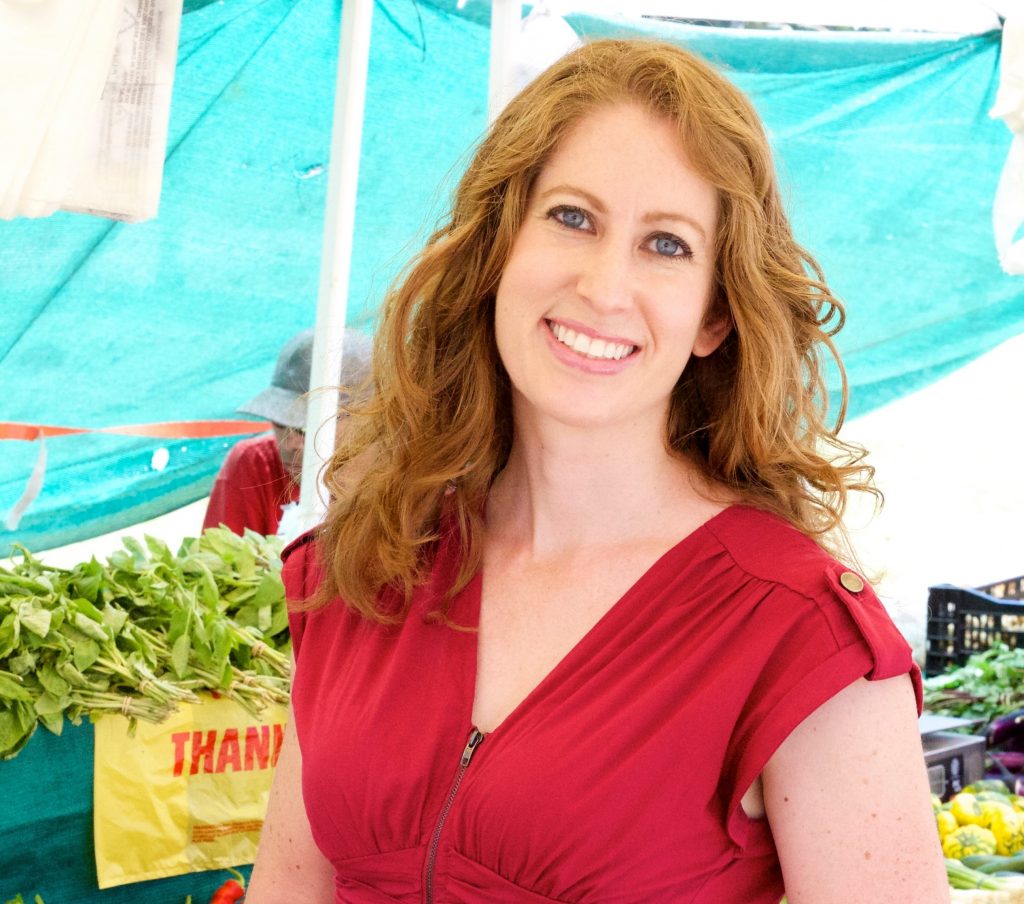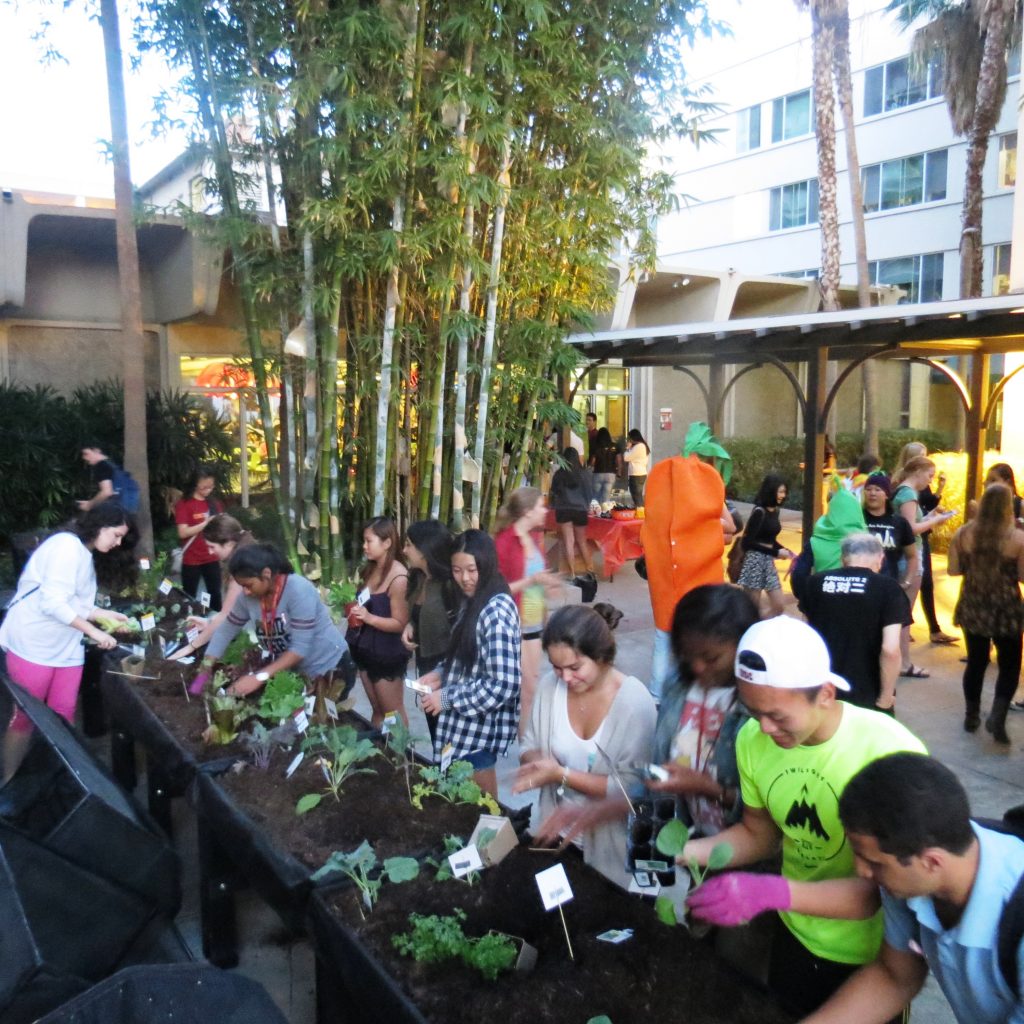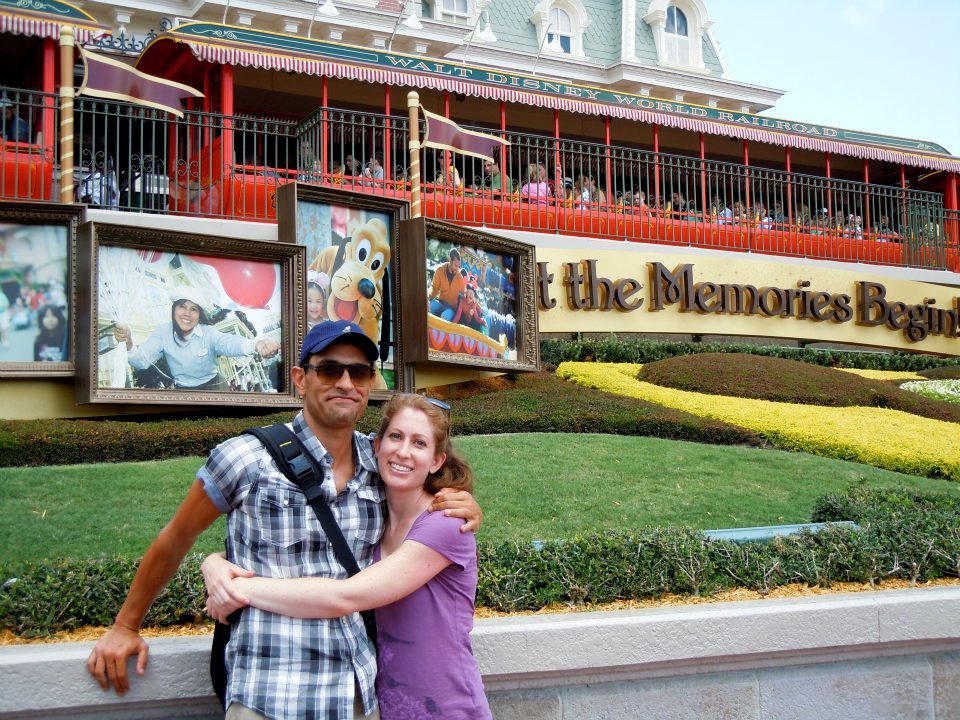
This week the spotlight is on Lindsey Pine MS, RD, CSSD, the registered dietitian for University of Southern California Hospitality. Her education includes a culinary degree from Seattle Central Community College, a bachelors degree in Hospitality & Tourism Management from San Diego State University and a masters in Nutritional Science from Cal State LA.
Lindsey is a member of the NACUFS Wellness & Nutrition Committee as well as the Incoming Mentor Program Coordinator for the Nutrition Entrepreneurs Dietetic Practice Group (NEDPG).
Her professional nutrition experience runs the gamut from clinical dietetics to sports nutrition with the Gatorade Sports Science Institute, but somehow she always seems to return to foodservice. Lindsey’s goal is to show students and guests that it is possible to eat nutritious and tasty food on a college campus. When not feeding the masses at USC, Lindsey loves fitness, outdoor activities, and Disneyland.
Lindsey, what was the very first nutrition-related job you landed?
Before I became a dietitian, I always worked in the culinary field as a cook and on the purchasing side. In 2005, I was working as a personal chef for a woman trying to lose weight. I could cook the number of calories she wanted, but I wasn’t a dietitian, so I didn’t know much beyond that. She kept lowering her calories to compensate for the amount of alcohol she was drinking every night when out at the clubs scouting for new music talent. I knew that wasn’t good, but I didn’t know why. So, that was my first unofficial nutrition job, which then led me to run back to school to get my masters degree in nutrition and go through a coordinated dietetic program.
Your education and background seems pretty perfect for your current position. Tell me a little more about your responsibilities on campus.
USC Hospitality runs all of the restaurants, cafes, C-stores, residential dining and the athletics dining venue on the campus of the University of Southern California. My job is to drive and support nutrition initiatives on campus through foodservice. This can encompass accommodating students with special dietary needs, menu development, education for students, educational support for chefs and managers, purchasing, sourcing, marketing, PR, writer, speaker, and the list goes on and on. University foodservice RDs are definitely jack and jills of all trades! My culinary training and background has been so helpful in the work that I do and I think gives me that extra bit of credibility with our chefs. More recently, I have added sustainability my responsibility list. I work hand in hand with our Executive Chef of Residential Dining to implement and drive our sustainability initiatives. Not only do we want to serve the best tasting food around, but we want to provide as much environmentally responsible food as possible.
What’s been your biggest career accomplishment so far?
It’s been pretty amazing to help shape the food program in Residential Dining at USC. I’ve helped to implement ingredient standards, greatly increase the vegan and vegetarian options as well as options for those with special dietary needs and to implement our Local, Sustainable and/or Organic (LSO) program. We serve around 8,000 meals, so there’s a massive opportunity to positively affect our guests! We’ve come a very long way in just a few years and I’m excited to see how much more we can do!

A garden planting party at one of USC’s residential dining halls, Everybody’s Kitchen. The garden of herbs and vegetables ties into their LSO initiative (Local, Sustainable, and/or Organic).
Do you personally follow any certain diet?
Diets just don’t seem like any fun and I enjoy food too much! I like the idea of the 80/20 rule where most of the time I’m eating healthy, non-processed foods, with lots of fruits and vegetables. I indulge when it’s worth it. It’s worth it when there’s a nice cheese platter or creamy scoop of Persian ice cream in front of me!
I try to not let myself get ravenously hungry because that’s when I tend to overindulge. I also do a lot of my own cooking rather than eat out in restaurants.
Is there any food that you won’t eat?
I’m a pretty adventurous eater and I’ll try most foods once, but I hate packaged deli meats. It’s a textural thing. They just seem slimy and gross to me. Also, I can’t eat plain eggs. Omelets and scrambled eggs need to be covered in veggies and salsa to mask the egg taste. To mask the taste of hard boiled eggs, I’ll mash them up with tahini and lots of chopped fresh dill. They’re actually pretty good that way!
What is your favorite kind of client to work with?
I enjoy working with clients who have food allergies/intolerances. When they leave the Dr’s office, they usually just get a list of all of the foods they CAN’T eat and often end up feeling pretty hopeless. I like being the positive person who shows them what they CAN eat and ways they can cook those foods!
Is there any food or nutrition related book or documentary that really changed the way you think about what you eat?
One of the first nutrition books I read was Food Politics by Marion Nestle. As for a movie, I think Food Inc was powerful. I had the opportunity to hear a talk based on the movie at USC a few years ago. It was a conversation with Michael Pollan and Eric Schlosser. I really respect the investigative journalistic work these guys have done within our food supply systems. I liked Michael Pollan’s message during this talk about choosing one thing that’s important to you. That could be local, fair trade, meatless Mondays, etc. You can’t be everything to everyone, so choose one thing that really speaks to you and follow through.
What are your thoughts on organic foods? Do you feel strongly one way or another?
If you have the monetary resources to buy all organic food, then go for it. But, realistically, most of us aren’t in that position. A lot of farmers are growing food sustainably, but not necessarily going the certified organic route because of the high administrative costs. I love going to the farmers market because you can actually talk to the vendors to see how they grow their food. When you buy food in season, it’s not necessarily more expensive at the farmers markets than it is at the major grocery stores. I’ll choose local and sustainable any day over organic. While, I’d prefer to purchase items such as thin skinned fruits that are free of pesticides, I’m not going to buy something just for the sake of it being organic, especially if I live in California and it’s trucked in from New York.. That doesn’t seem like the environmentally responsibly thing to do.
What about GMOs?
There’s a lot of unknowns with GMO foods. I don’t know how we can definitely say they are safe when we just don’t have the research to back that up. There is just not enough research to prove that they are 100% safe or that they aren’t safe. I prefer to take a more precautionary approach and if I have the choice of not purchasing them, I won’t.
Do you take any vitamins or supplements?
Unless someone has some medical need for a vitamin or supplement, I definitely believe in food first! There’s such a great synergy that occurs in food that we don’t get in a pill form. Scientists haven’t even discovered all of the disease preventing phytochemicals in foods like fruits and vegetables! I try to eat seafood a couple times a week, but if I’m not able to, I will supplement with a fish oil supplement to get the EPA/DHA components of Omega-3s that are minimal in plant based foods.
You’re most happy when….?
I’m either traveling, at a Disney theme park or sitting on a tropical beach. I have pretty intense Disneyland/DisneyWorld and tiki obsessions! I’m proud to say that my husband and I can now claim that we’ve visited every tiki bar in Los Angeles County. We love to soak in the ambience, culture, and music. Trader Sam’s at the Disneyland Hotel tops all of those categories, which is convenient so I can enjoy both Disneyland and tiki at the same time!

What’s the most frustrating thing about being in the dietitian profession?
I live in L.A. where its pretty easy to get really crazy, bad advice from self proclaimed nutritionists and celebrities. It can be pretty frustrating having to weed through all of the latest nonsense fads.
Do you think a Masters degree should be required to be an RD?
I think dietitians and all health practitioners operating at a high level should have graduate degrees.
What would you like to accomplish (can be career or non-career related) in the next 5 years?
I know that at some point in the near future, I would like to have my own business. That’s one of the reasons why I joined Nutrition Entrepreneurs. I’m soaking up the info so that when I’m ready to make my move, I’ll be prepared!
Right now, I’m about to go through the LEAP food sensitivity training and I’m working on increasing my social media presence, such as filling my Pinterest boards, being more active on Twitter, etc. With that being said, my twitter handle is @tastybalance. I’d also like to get a website going for myself to replace my old, outdated looking blog. Once I started working full time at USC, I stopped blogging. I’d really like to start that up again.
